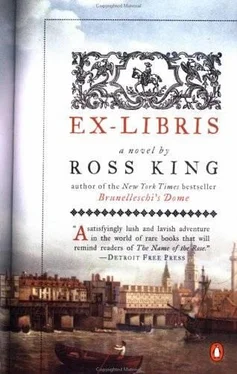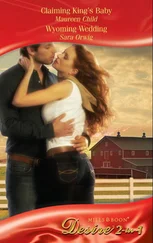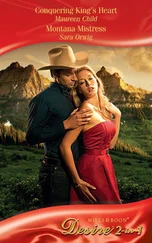By the time I ate a breakfast of radishes and black bread, then drank a morning draught and spent a quarter-hour perched on the close-stool, I felt somewhat better. I descended to the shop and for another quarter-hour performed the old rituals of the awning and the shutters, the unbarring of the door and the tidying of the counter, all the while stumbling round in a pleasant daze as if surprised to find my shop still standing and myself safely inside it. This morning the resinous scent of walnut and pine-the sweet tang of the forest-spiced the familiar fug of rag-paper and buckram. The shop was better than new, I decided, inspecting the shelving and the hinges of the green door. I felt like a sea captain whose ship has been wrecked and then expertly repaired on a foreign shore from which it is time to sail for home.
Yes, I was feeling much better. After Monk departed for the General Letter Office I stepped outside the door and loitered for a time on the footpath, feeling the newly minted sun on my skin and gazing blearily up and down the carriageway as if taking my bearings from one of the signboards. And all at once the dream came back to me, stark and horrible.
Ordinarily I do not set much store by dreams. The few I remember are mundane, vague, illogical and unsatisfying. But the previous night was different. After my return from Wapping I retired to bed with my copy of Don Quixote , in which I reached Chapter 6, the point where the priest and the barber inspect and then burn the contents of poor mad Quixote's library, the source of his fantastic delusions. The episode recycled itself in my dreams, except that it was no longer Quixote's books but my own that burned. I had watched in cringing horror as they were ripped from the shelves and tossed by the armload into a bonfire by a band of taunting culprits who refused to resolve themselves as they darted in and out of the firelight. Soon these figures vanished into the night and I found myself at Pontifex Hall, alone, first inside the library, where the flames were devouring the shelves, then outside in the hedge-maze a few seconds later, watching as ashes and scraps of pages were carried skyward on great tentacles of black smoke, before returning to the ground like the cinders of an exploded volcano. At which point Pontifex Hall metamorphosed into a burning ship and the dream concluded with the thunderous crash of falling timbers. I awoke to discover that Don Quixote had toppled from my belly to the floor.
Now I wondered what on earth I should make of this disconcerting chain of images. Plato claims that all dreams are prophecies of things to come, visions of the future that the soul receives through the liver, while Hippocrates says that they are portents of disease or even madness. And so on neither account was I especially heartened. I decided I should take instead the advice of Heraclitus, who tells us that all dreams are nonsense and are therefore best ignored.
I was still standing on the footpath, under the awning, gawping like an imbecile, when Monk returned from Dowgate with the post. Two letters had arrived: one from a bookseller in Antwerp, the other from a superannuated clergyman in Saffron Walden. I followed Monk inside the green door. Another day awaited.
***
An hour later I caught a hack to Seething Lane. I had no intention of revisiting either Silas Cobb or the Navy Office, but rather I hoped to speak with the vestry clerk of St. Olave's. Morning Prayer was in progress as I arrived, so I slipped into a pew at the rear, where I fumbled with a Prayer Book-one of those little volumes that Cromwell and his generals had done their best to burn-and felt self-conscious and oddly guilty. I have never been a church-goer, unlike Arabella, who sometimes attended two services a day. I have no objection to the practice, neither to the Puritans with their riotous conventicles nor the Established Church and its incense, railed-off altars and other quasi-popish rituals. But I am at heart, I suppose, like the Quakers who believe in their so-called inner light that needs no priests or sacraments to kindle it.
As I sat in a sunbeam spilling through the stained glass I was not, however, contemplating spiritual matters. I was thinking about Henry Monboddo and Sir Ambrose Plessington, about what imponderable connection might exist between The Labyrinth of the World and their adventures in Spanish America, between the Corpus hermeticum and a group of Protestant fanatics. These fruitless musings were interrupted as the service ended, at which point I picked my way up the aisle, past the departing congregation, wondering if my habitually dishevelled appearance along with the ill effects of the previous night's drink made me look to the vicar like a repentant sinner coming to beg forgiveness for a profligate life. In any event, he directed me with no apparent qualms to the vestry, where I discovered the clerk and explained to him that I wished to consult the parish records in order to learn something about one of the parishioners-an ancestor of mine, I told him-who was buried in the churchyard. He seemed pleased enough to oblige and, after much truffling in one of the cupboards, presented me with a fat volume, a register-book for the year 1620, bound in cowhide. He bade me sit at his little desk, then disappeared into the church, which now was empty except for an old woman slowly working her way along the flagstones with a mop.
The register-book was divided into those three staging-posts of life: christening, marriage and death. I riffled quickly to the section on deaths. It made depressing reading in the gloomy environs of the vestry. I knew that before the parish clerks compiled and published the Bills of Mortality, as they do nowadays, register-books often recorded causes of death. But I was quite unprepared for the little biographies of doom that ran next to each name and date, column after column, page after page: apoplexies, dropsies, pleurisies, spotted fevers, bloody fluxes, 'murthers', starvations, plagues, poisonings, suicides-and so forth, an endless catalogue of long-forgotten tragedies. One poor soul had even been 'mauled by a Bear escaped from the Bear-pit in Southwark', another 'eaten by a Crocodile in St. James's Park'. Also recorded were a few deaths of a more imprecise nature, men or women who had been 'found dead in the street' or 'killed in a fall', while 'cause of death unknown' had been inked beside the names of others.
Silas Cobb's death proved one of these more mysterious varieties. After some thirty minutes I discovered his name near the back of the volume, in the pages dedicated to the month of December, which looked to have been an especially dangerous month for the parishioners of St. Olave's. But the information proved disappointing. A smudged italic hand simply recorded that Silas Cobb had been 'found dead in the river below York House'. Nothing more. No occupation, no address, no next of kin. No clues of any kind to his identity.
A waste of time, I decided. I closed the register-book and thanked the clerk, and not until I reached the door of the church did I suddenly remember something that Biddulph mentioned a day earlier, that York House had once belonged to Francis Bacon, supposed architect of the Philip Sidney , who eventually sold it to the Duke of Buckingham, who in turn kept his books and paintings inside until his son was forced to sell them, using as his agent (according to Alethea) none other than Henry Monboddo.
For a few seconds my sideburns prickled with excitement… but soon I decided that I had merely conceived a strange and unstable fantasy. Any connection between Cobb and either Bacon or Buckingham, or between Cobb and Monboddo, must be a distant one at best. Even the connection between Cobb and York House with its hundreds of paintings was probably no more than an odd coincidence, for his corpse might have floated either upstream or downstream on the tide, as much as a mile or two, before being pulled from the waters below York House. He might have fallen into the Thames-or been tossed into it, dead or alive-at almost any point between the Chelsea Reach and London Bridge. The newssheets in those days were full of tales of these little voyages; of despairing men who leapt from the palings of the bridge only to fetch up, days later, three or four miles downstream.
Читать дальше












